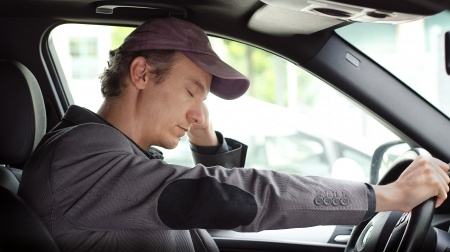Daylight Saving Time and Drowsy Driving Accidents?
March 24, 2014 | Category: Automobile Accidents | ShareThere is debate on whether "Daylight Saving Time" actually does what it was intended to do. That is conserve energy. According to The New York Times March 6, 2014 article by Professor Matthew Kotchen of Yale University, the argument started before Benjamin Franklin that by moving the clocks forward in the spring and backward in the fall there would be a "decreased energy consumption because more sunlight in the evenings will reduce the need for artificial illumination".
However, there is no debate on the fact that when we turn our clocks ahead one hour, we lose one hour's sleep. Dr. Steven Feinsilver, the Director of the Center for Sleep Medicine at the Icahn School of Medicine at Mount Sinai, New York City, says it's "generally easier to stay up an hour later than to sleep an hour earlier, which is why the start of Daylight Savings is a little more of a challenge than the end of the time change."
 According to the National Sleep Foundation surveys, 20% of American adult drivers surveyed admitted they have fallen asleep while driving the previous year. The National Highway Traffic Safety Administration estimates, conservatively, that 100,000 police-reported crashes each year are caused primarily by drowsy driving and that these crashes result in more than 1,550 deaths, and 71,000 injuries.
According to the National Sleep Foundation surveys, 20% of American adult drivers surveyed admitted they have fallen asleep while driving the previous year. The National Highway Traffic Safety Administration estimates, conservatively, that 100,000 police-reported crashes each year are caused primarily by drowsy driving and that these crashes result in more than 1,550 deaths, and 71,000 injuries.
"There are some signs of sleepiness of which drivers should be aware in order to avoid drowsy driving vehicle accidents," says Fort Myers Personal Injury Attorney, Randall Spivey of Spivey Law Firm, Personal Injury Attorneys, P.A.
The National Sleep Foundation (NSF) says to watch out for these signs of sleepiness:
- Trouble focusing, keeping your eyes open or your head up.
- Yawning or rubbing your eyes repeatedly.
- Daydreaming and wandering thoughts.
- Feeling restless, irritable or aggressive.
- Drivers may not be aware they are drowsy when turning up the radio or rolling down the window. Therefore, these are signs of being drowsy.
- Slower reaction time, poor judgment.
We are all at risk of falling asleep at the wheel. However, NSF believes the following groups are more at risk than others:
- Young drivers
- Shift workers and people working long hours
- Commercial drivers
- People with untreated sleep disorders such as obstructive sleep apnea (OSA)
- Business travelers
Setting, and re-setting, our internal clocks does take a little time. However, if we are aware of this, we can take positive actions to prevent drowsy driving. Some experts recommend:
- Getting off the road if there are any warning signs of fatigue.
- Taking a 15 to 20 minute nap in a safe place.
- Driving with a friend, or having a friend drive.
Fort Myers Personal Injury Attorney, Randall L. Spivey is a Board Certified Trial Attorney – the highest recognition for competence bestowed by the Florida Bar and a distinction earned by just one (1%) percent of Florida attorneys. He has handled over 2,000 personal injury and wrongful death cases throughout Florida. For a free and confidential consultation to discuss your legal rights, contact the Spivey Law Firm, Personal Injury Attorneys, P.A., in Lee County at 239.337.7483 or toll free at 1.888.477.4839,or by email to Randall@SpiveyLaw.com. Visit SpiveyLaw.com for more information. You can contact Spivey Law Firm, Personal Injury Attorneys, P.A.in Charlotte County at 941.764.7748 and in Collier County 239.793.7748.

